

Write what you are looking for and press enter to begin your search!
Live News
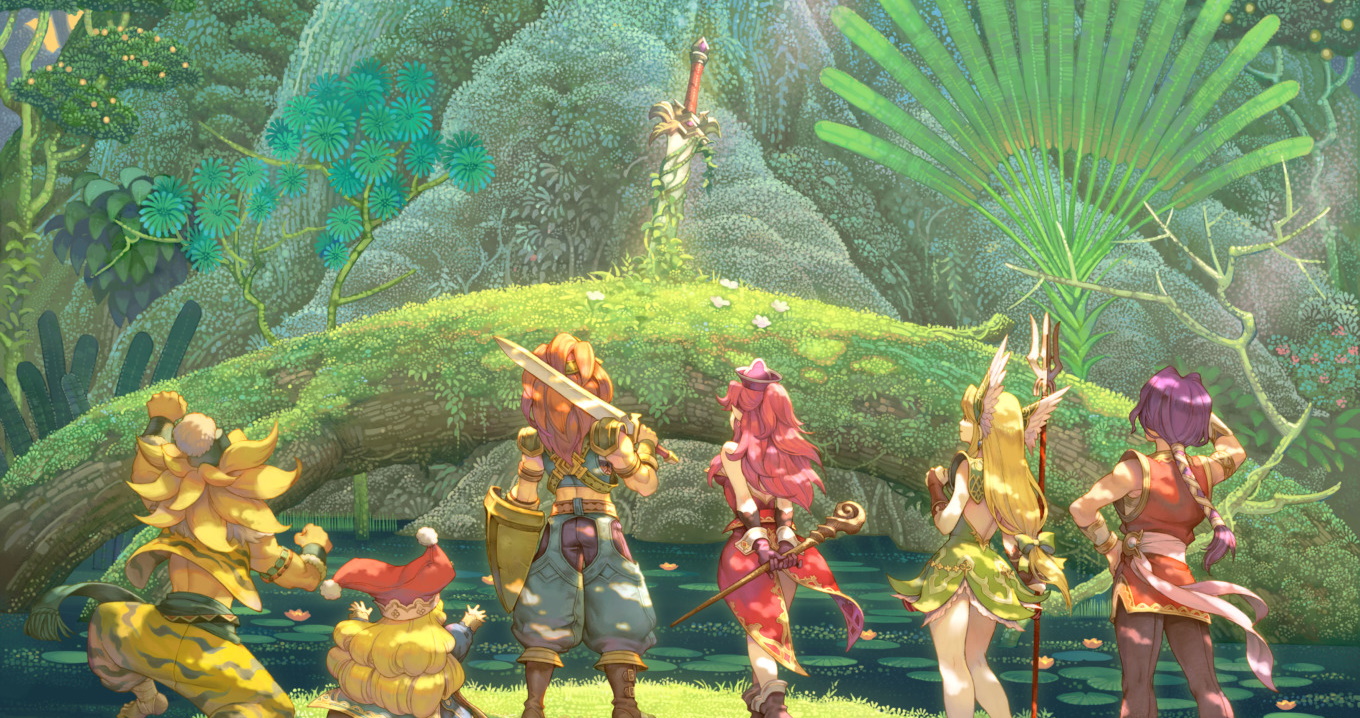

Trials Of Mana’s Beautiful Reinvention Is Marred By Questionable Voice Acting
 ">
">
By Alleef AshaariVerified|May 1, 2020|1 Comment
Platforms: PS4, PC, Nintendo Switch
Genre: 3D Action RPG Based On The Most-Requested Mana GameÂ
April 2020 has been all about the juggernaut that is the Final Fantasy VII Remake. Sure, it’s a great game deserving of all the praise it’s getting right now, but a lot of gamers (and even Square Enix, it seems, considering the lack of marketing) have seemingly forgotten that another JRPG remake is coming out only weeks apart in the very same month.
That’s right; it’s the Trials Of Mana remake. The original game (known as Seiken Densetsu 3 in Japan) initially launched back in 1995 for the SNES, but it only received an international release for the first time in 2019’s Collection Of Mana. Square Enix’s Mana series has always been lesser-known compared to their other JRPG franchises.
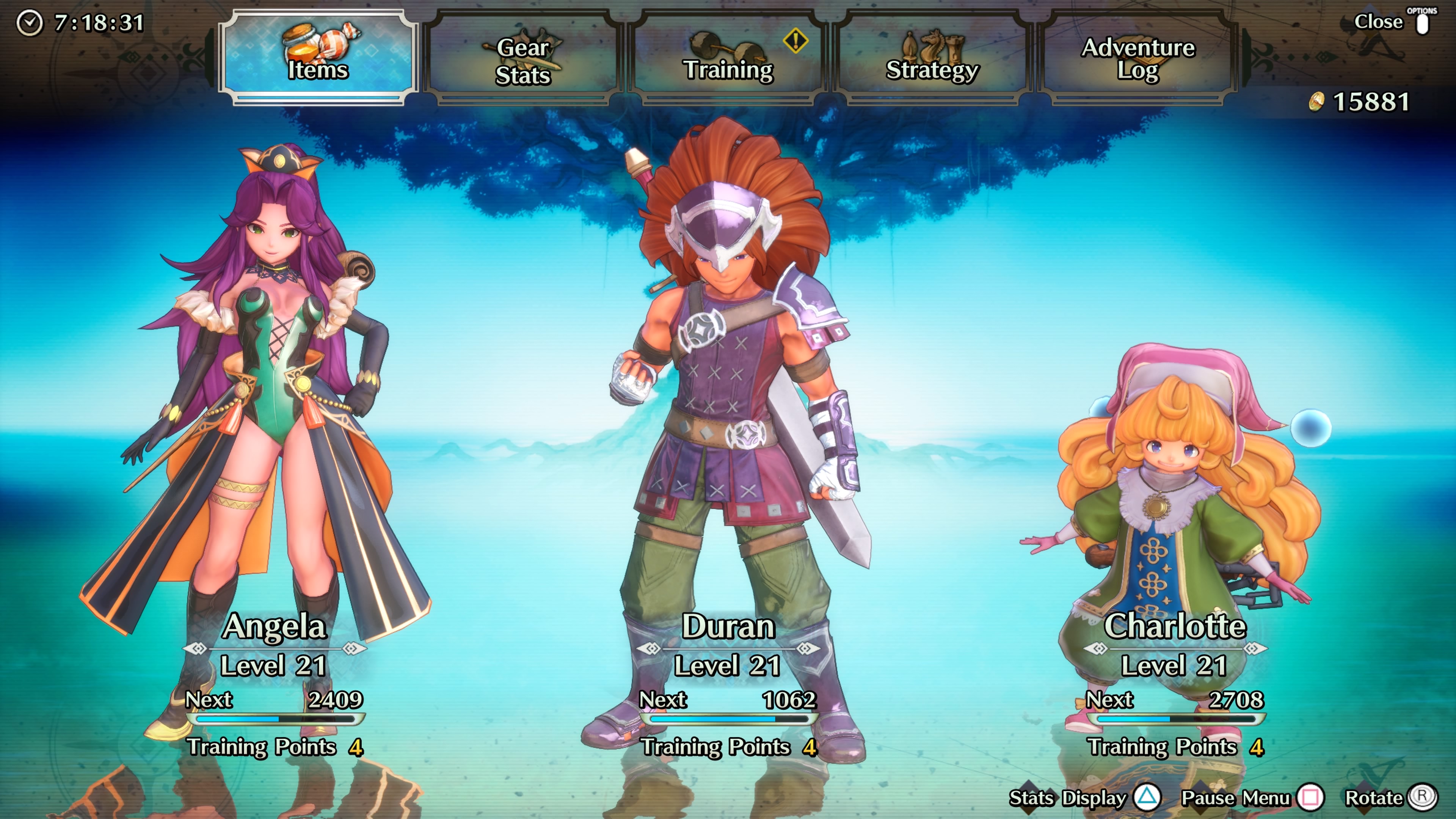
First and foremost, it’s important to note that the Trials Of Mana remake is not meant to be a bold reinvention like Final Fantasy VII Remake, but more akin to Dragon Quest XI: Echoes Of An Elusive Age, in that both games remain rooted in their traditional roots, for better or worse. Unlike Dragon Quest XI (which was my personal favourite JRPG of this entire generation), the Trials Of Mana remake doesn’t have the luxury of the same level of resources or the advantage of being a brand new entry.
Instead, the Trials Of Mana remake is shackled by the fact that it has to adhere to the plot threads and elements from the original 1995 game. This is the game’s biggest weakness, especially since many of the elements from the original games are now considered dated and awkward. The Final Fantasy VII Remake managed to avoid this problem, but the Trials Of Mana remake had to make do with what they already have.
The story and dialogue in Trials Of Mana feel like a remnant of the 90s, and the developers didn’t really bother to update the actual story content or bring it to 2020 standards. It’s not particularly bad per se, especially if you find overly-cheesy and corny content like this more charming. It’s not for everyone, just like modern gamers didn’t like Dragon Quest XI‘s adamantly sticking to its roots.
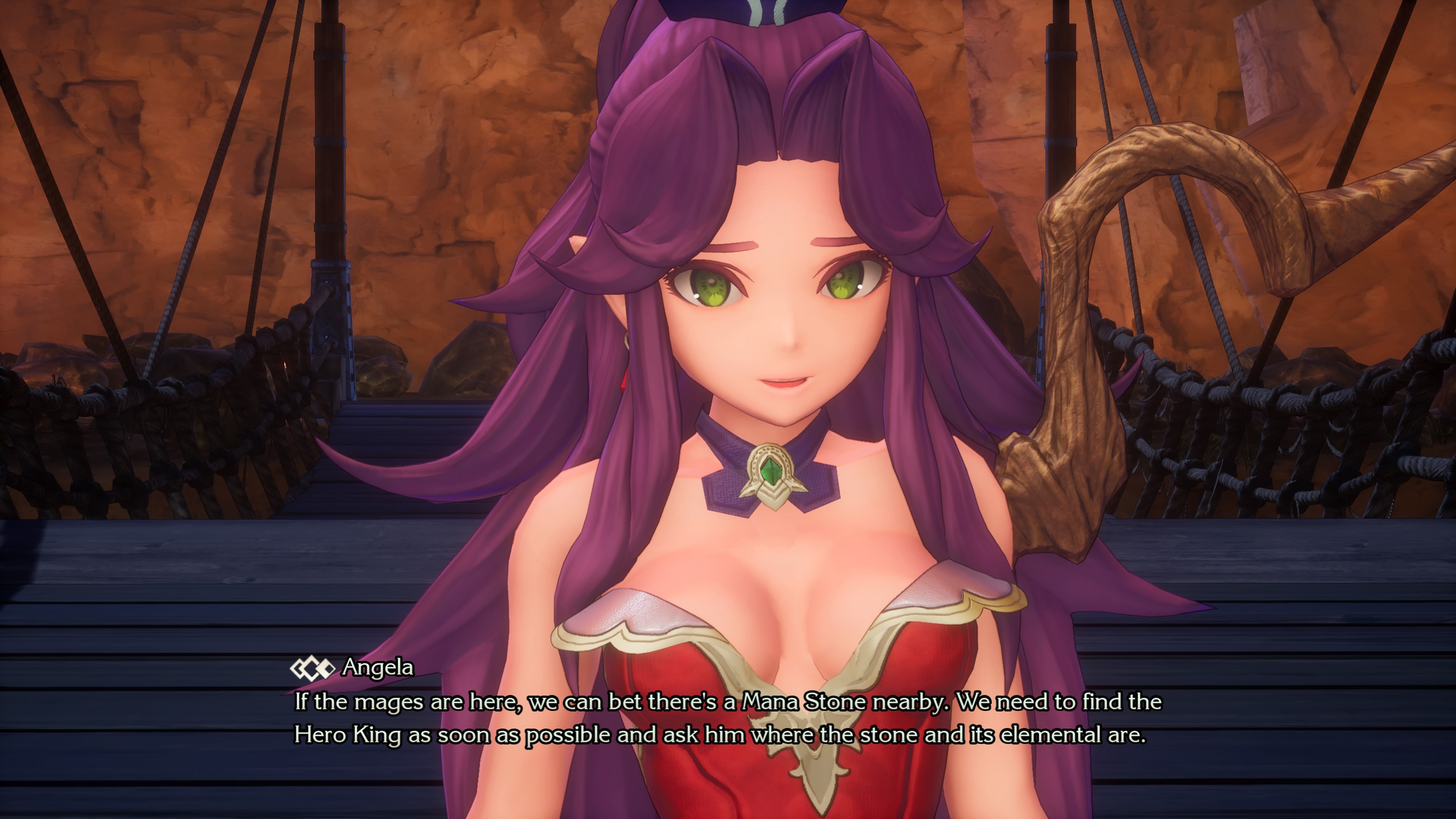
The Trials Of Mana remake recreates the events and structure of the original almost beat-by-beat. Only this time, it has received a spiffy 3D makeover and modern gameplay enhancements. The idea of having six different playable characters to choose from (each with their own personal narratives and stories) leading to different endings and final bosses was the game’s driving innovation when it launched on the SNES, which was basically unheard of in a JRPG in the 90s.
That remains somewhat true even now in 2020, as most JRPGs tend to follow a fixed or set group of characters, instead of giving players the choice to choose whoever they wish. Some JRPGs like Persona 5 and Sakura Wars may have different endings and dialogue options, but you still don’t have the freedom of actually choosing who your main protagonists are.
At the beginning of the game, players get to choose your main protagonist (essentially the leader) and two companions who’ll eventually join them on their quest.
The story will be different according to which character you choose, the first two of which are the most important as they determine both the third act and who the final boss will be. In fact, this encourages multiple playthroughs.
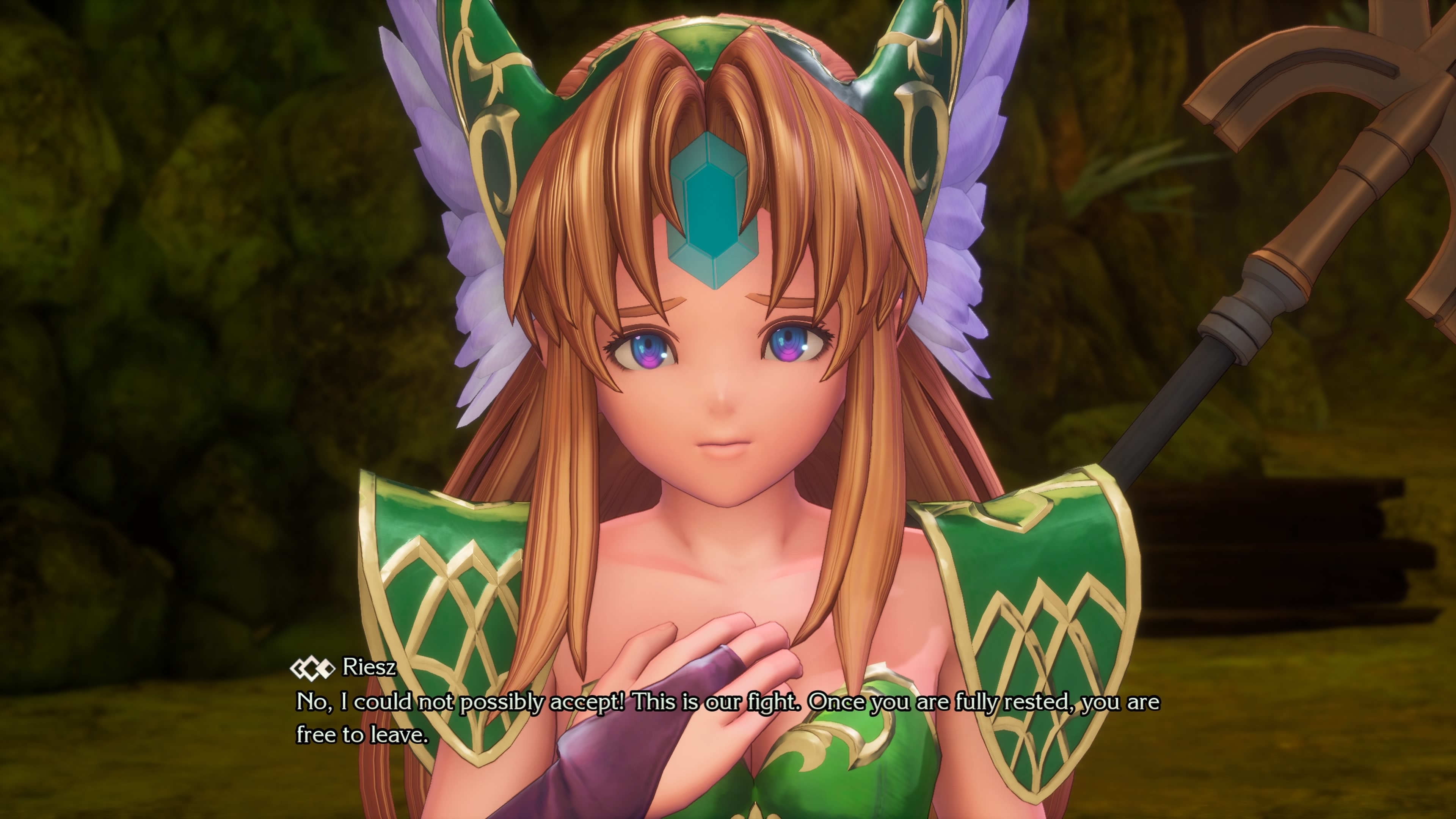
That may seem daunting and unnecessary at first. I mean, who the hell has the time and energy to replay a 100-hour JRPG multiple times? That would normally be the case, but a single Trials Of Mana playthrough is only about 20 hours long, which means that even playing three or four playthroughs with different characters will still only be as long as a single playthrough in Persona 5 or Dragon Quest XI: Echoes Of An Elusive Age.
This adds a lot of replay value to the Trials Of Mana remake, especially considering that it’ll take players a minimum of three playthroughs for a thorough sweep of everything that the game has to offer. That’s not even mentioning the post-game content, which adds several more hours into the game that were not available in the original, giving veteran players something new to experience.
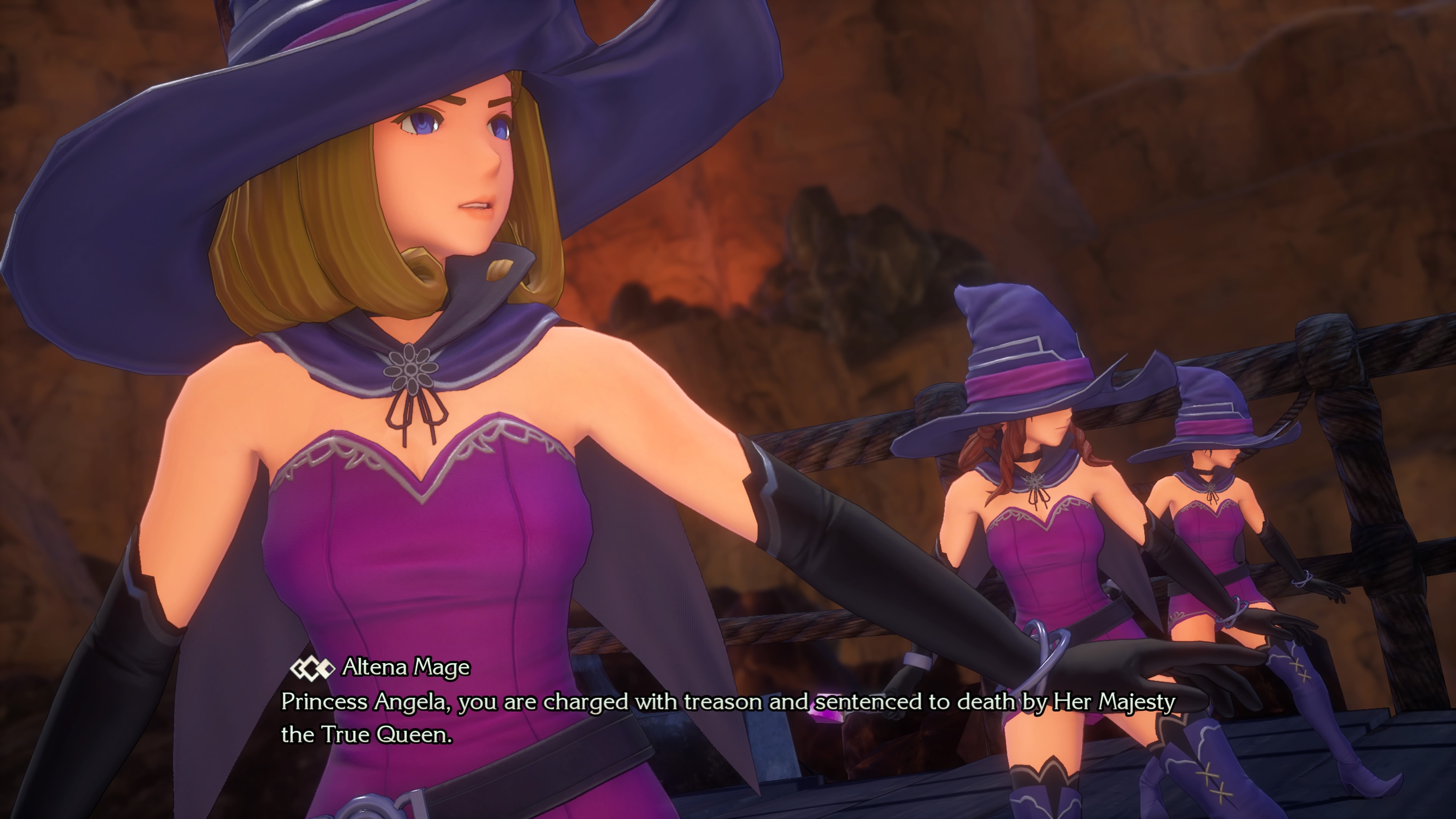
The best JRPGs are venerated for having great stories, character and gameplay, but it’s even more impressive that the older classics managed to achieve all that without voice acting. Voice audio was only introduced into the genre in the early 2000s.
Things weren’t really good then, as evident by Final Fantasy X‘s still-derided laughing scene featuring Tidus and Yuna. However, we’ve come a long way since then, with the impressive quality of voice acting that can be heard in games like the Persona franchise and Dragon Quest XI: Echoes Of An Elusive Age.
Unfortunately for the Trials Of Mana remake, it reverts back to those mistakes.
I won’t mince words: the English voice acting in the Trials Of Mana remake is atrocious and just plain horrible for the most part. You’ve probably heard by now how Charlotte (one of the six main protagonists) speaks with an ‘uwu’ slang. What does that mean? She speaks like a toddler would, with every ‘R’ and ‘L’ replaced with a ‘W’ instead.
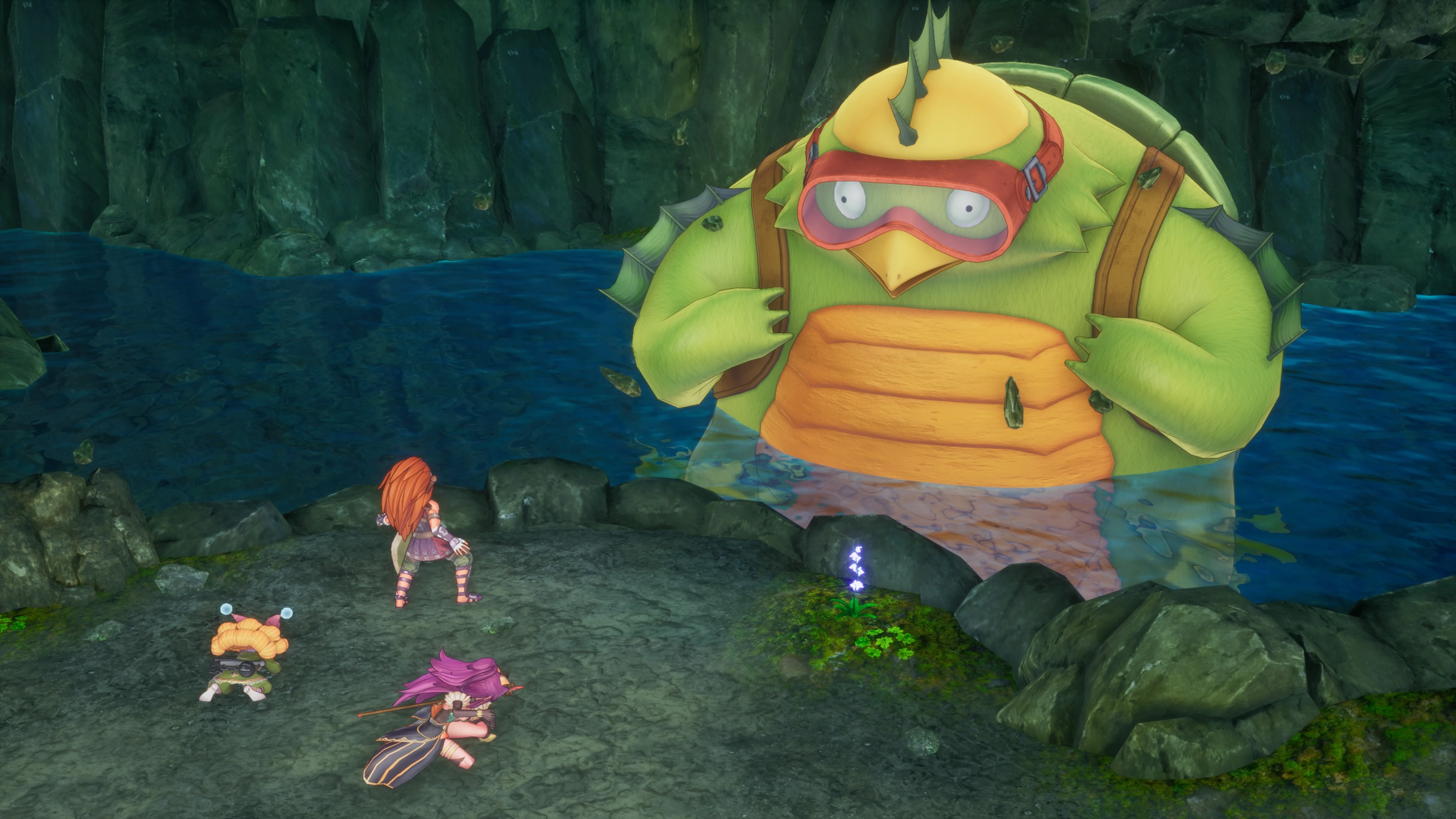
Admittedly, it wasn’t as annoying as I thought it would be. I found it to be endearing and sometimes even cute, but that probably won’t be the case for many gamers who will just find Charlotte’s mannerisms simply annoying. Meanwhile, other main character Angela speaks like a typical high school mean girl/popular girl archetype, with over-exaggerated tones that come across as just making the character sound more juvenile than she really is.
Even Duran’s voice acting (the main protagonist that I chose as the leader of my party) feels bland and uninspired at best, like an NPC would sound like in the countless better JRPGs out there. That said, it’s baffling how some of the NPCs in the Trials Of Mana remake sometimes sound much better than the actual main protagonists. These include characters like Faerie, who is voiced by Stephanie Panisello, best known for her recent role as Claire Redfield in the Resident Evil 2 Remake.
Maybe I am exaggerating, especially after being spoilt by the great voice acting in other recent JRPGs. The terrible voice acting in Trials Of Mana means that the emotional moments during story cutscenes immediately falls flat, losing any of their dramatic weight.
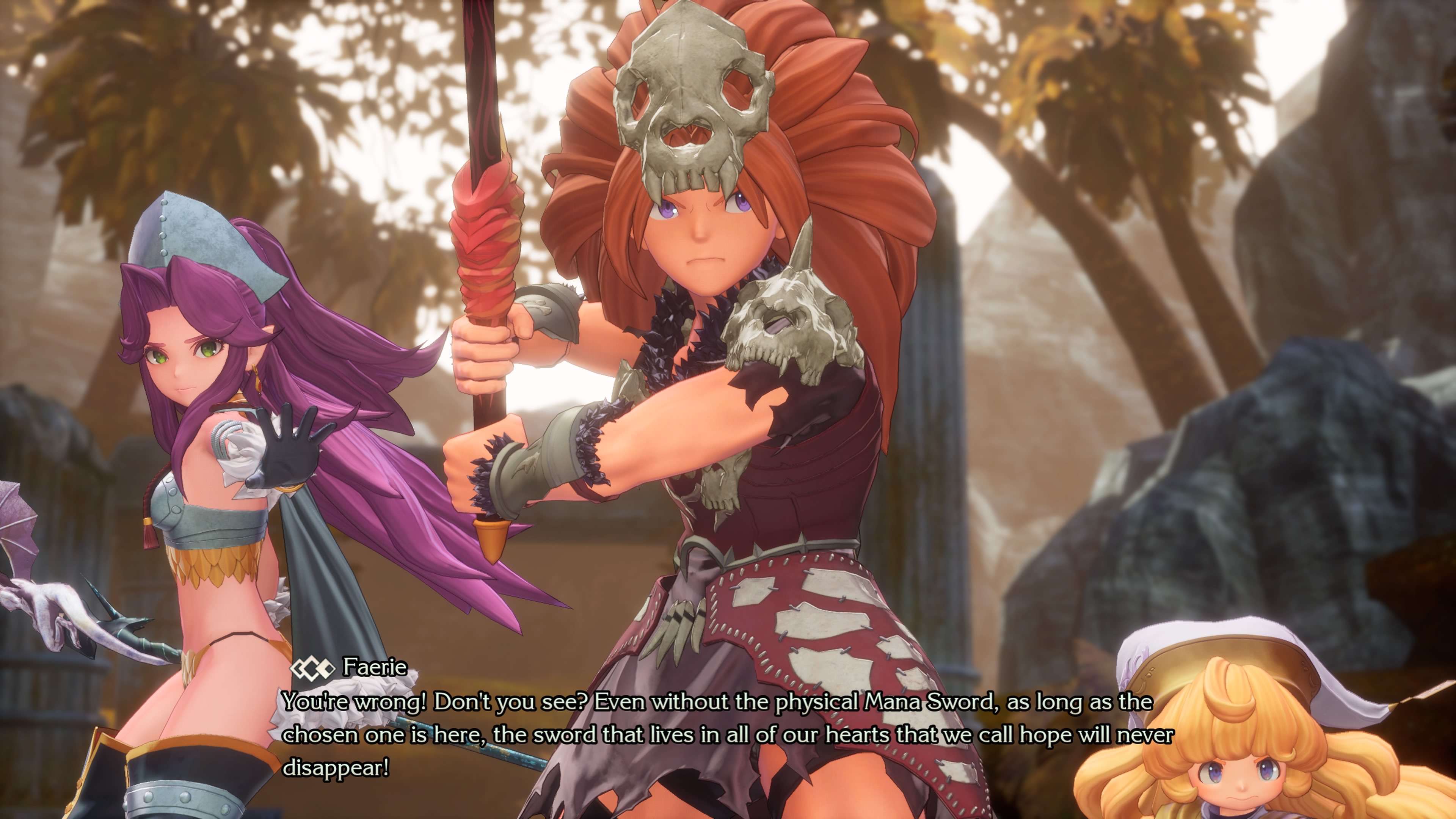
Thankfully, the gameplay and combat shines brighter than its aesthetics. It’s clear that whatever resources Square Enix gave to the development team was channelled into improving the core gameplay of Trials Of Mana. I’m happy to say that they definitely succeeded in that regard.
Players will spend most of their time in Trials of Mana engaging in real-time action combat, interspersed with the occasional pathfinding, platforming and light puzzle-solving. However, it’s painfully easy to find your way, as maps are often straightforward in nature with waypoints pointing players from objective to objective.
Just like in other JRPGs, straying from the beaten path will still be rewarding, but the journey throughout the game is linear for the most part.
The combat in the Trials Of Mana remake feels extremely fluid to play. The closest gameplay system to this would be Bandai Namco’s Ni No Kuni 2: Revenant Kingdom. Despite only having two attack buttons (circle for light attacks and triangle for heavy attacks), controls are tight and movement have a sense of weight to them that I appreciated.
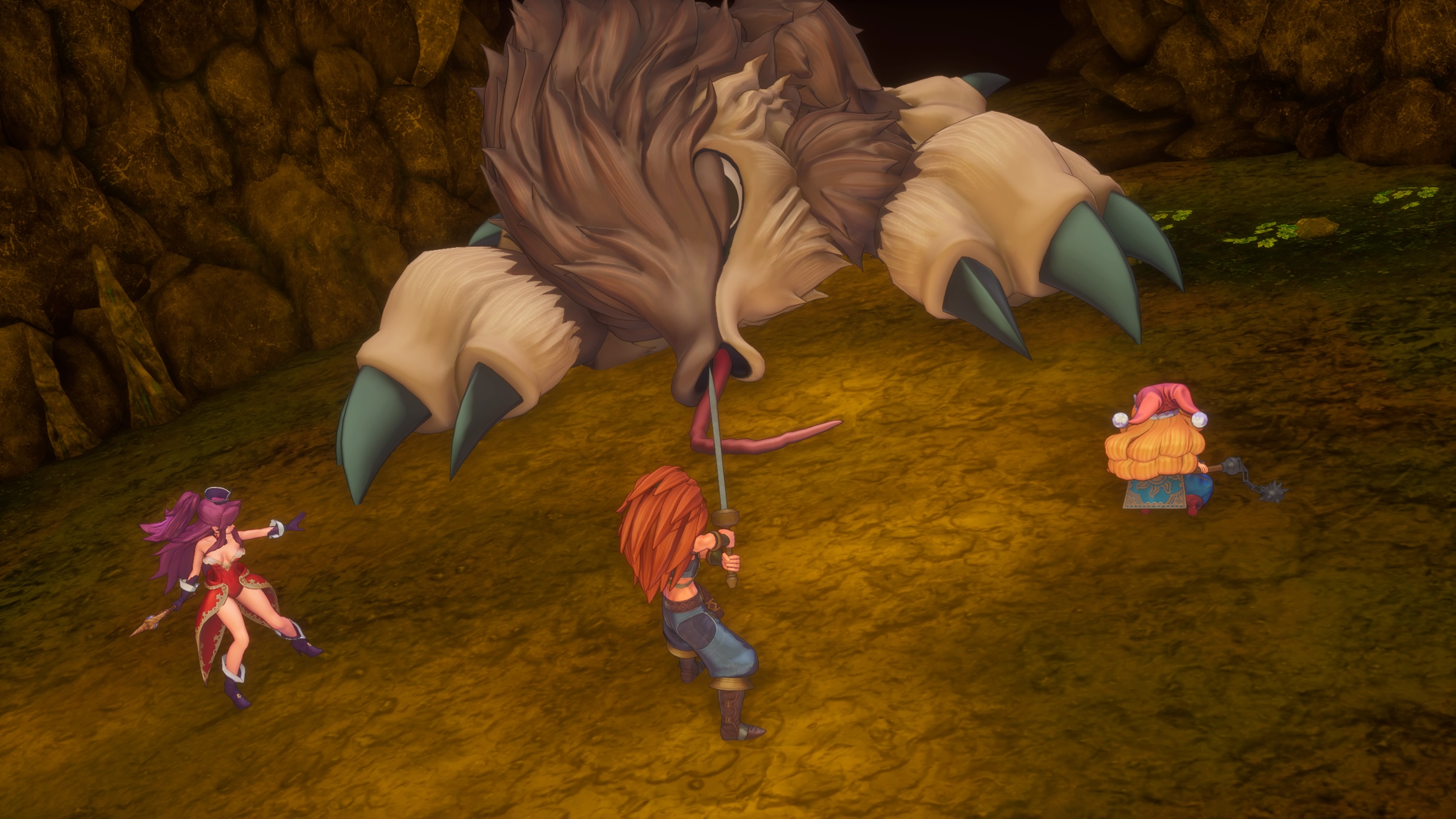
You’ll also be dodging and rolling a lot in this game, so you can’t simply hack-and-slash your way to victory (or you can, due to the lack of difficulty, but more on that below). Enemies will telegraph their more powerful attacks with red light projections indicating where their attacks will hit, so players have to time their attacks and dodges carefully.
During the heat of battle, players can stop time at any moment by bringing up either the Item or Move wheels, the former of which is for using items while the latter is to use spells/skills. Players can also instantly swap to any character by pressing the R2/L2 shoulder trigger buttons. These work smoothly, similar to how the same mechanics work in the Final Fantasy VII Remake.
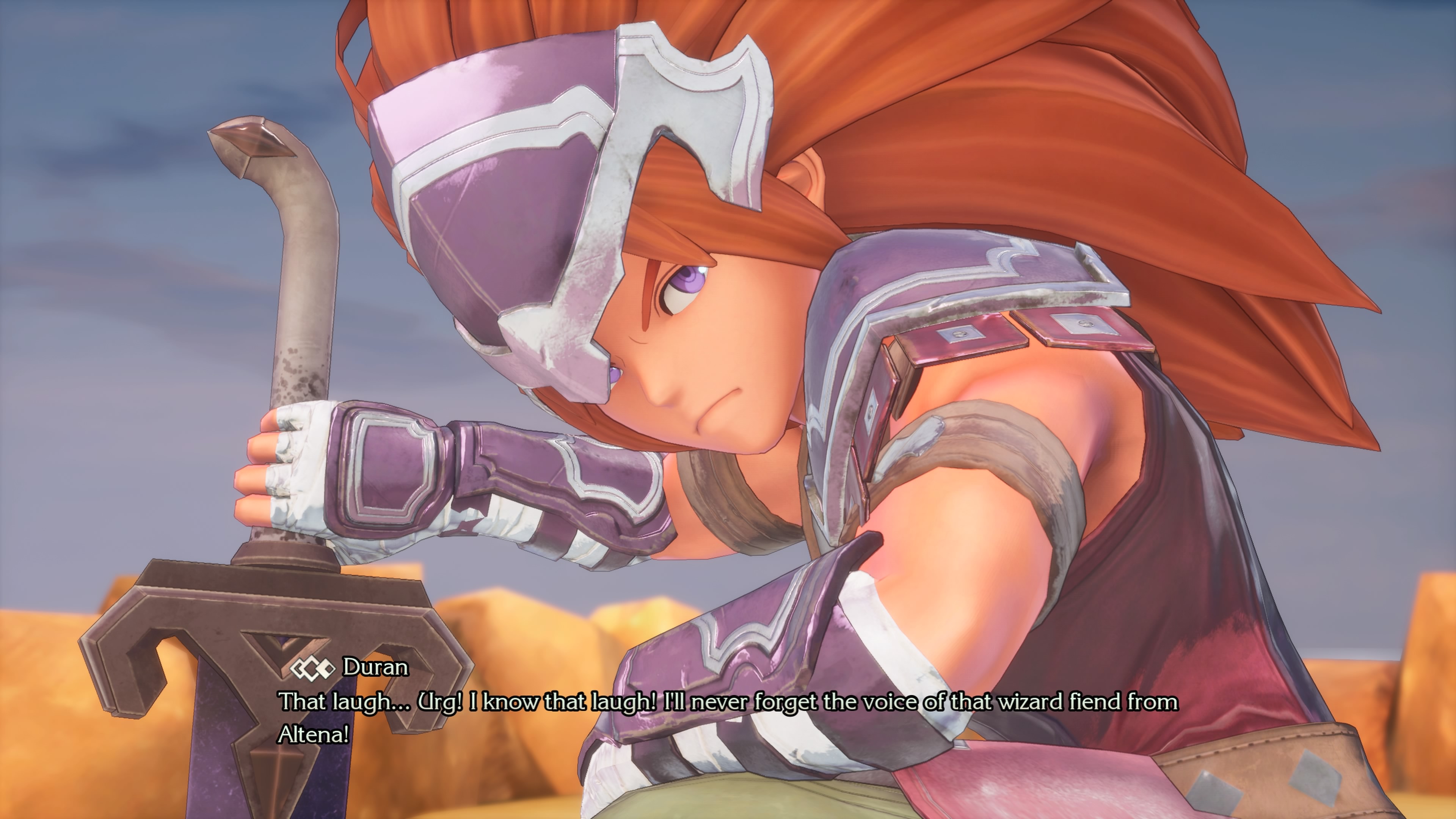
A gameplay mechanic that distinguishes Trials Of Mana from other JRPGS is its robust class system. Trials of Mana lets players change their character’s class after reaching a certain level and obtaining the required item. Classes do more than just affect stats, as they also significantly change how the characters look and the abilities that they receive.
It’s also far more complex than meets the eye. For example, if I chose the Light classes for Duran, he could have learnt healing abilities, wield a shield, and earn more elemental-based magic attacks for an all-rounder tank character.
However, I ultimately opted for the Dark classes, as they offered more offensive benefits, which suited my aggressive playstyle for Duran. Unfortunately, I had to sacrifice almost everything that came with the Light classes that I mentioned before, including the ability to wield shields. To mitigate that deficiency in my party, I appointed Charlotte as my primary healer and even chose her (Light) classes towards that purpose, so I didn’t need another support-based character.
In addition to the different characters and storylines, the class system helps in massively-increasing replayability. You can use the same character from your older playthroughs and choose different classes for them in newer playthroughs, resulting in even more variety and much-needed diversity.
[wpvideo B2yYCwk8]An aspect in Trials Of Mana that really should be a mainstay in JRPGs is its Strategy system. Similar to gambits from Final Fantasy XII, the Strategy system allows players to customize how their AI party members behave in battles. Using this system, I told Charlotte to focus on healing and support abilities, while Angela should focus on attacking with her magical spells.
That might not seem much, but it’s a game-changer when I could tell them to not use any items (or vice versa, including specifying how many they’re allowed to use in a single battle), or giving them a set of amount of MP they could use in any given battle. This helps to avoid the AI wasting precious MP on weaker enemies, especially during the early game.
There are various difficulty options for Trials Of Mana, but the game can be a tad too easy for veteran JRPG players even if you play on hard. In my 20+-hour playthrough, I managed to defeat even the game’s post-game super boss and the true final boss while being under-levelled, impressively without dying even once.
I basically just rail-roaded the hardest dungeon in the game by spamming the same super attacks over and over again. These aren’t just idle boasts; compared to the often unforgiving endgame of other JRPGs, you’ll certainly find this one to be a cakewalk.
Not that I mind; I actually found the relatively easier and relaxing experience in Trials Of Mana to be just what I needed, especially after the stressful and taxing tasks of obtaining back-to-back Platinum trophies for games like Nioh 2 and Final Fantasy VII Remake.
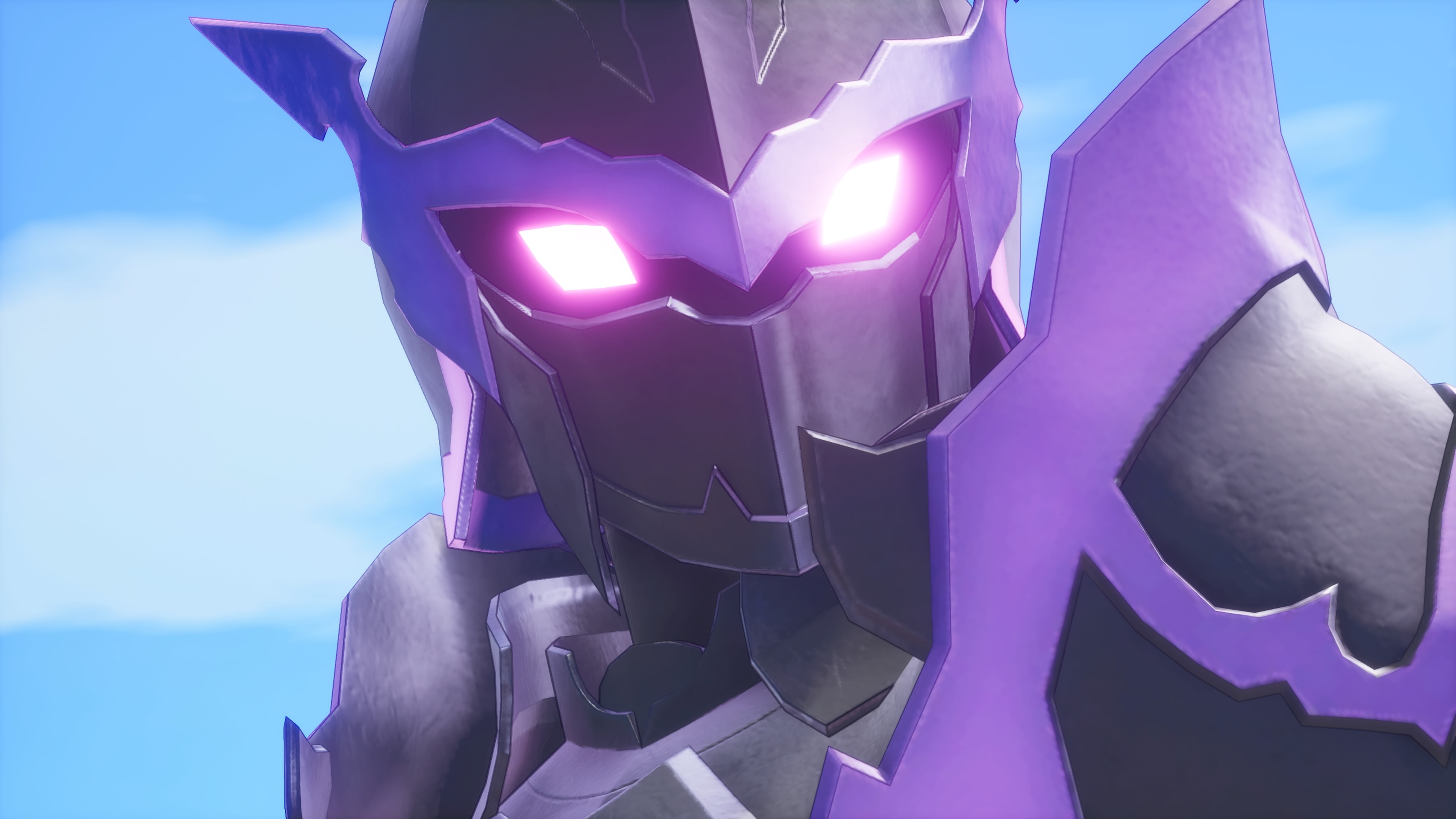
The Trials Of Mana remake might not accomplish any revolutionary or genre-changing feats, but it ultimately doesn’t need to. For all of its flaws, it’s still a great game gives tribute to the simpler JRPGs of yesteryear by improving on important aspects like visuals and gameplay.
If the Trials Of Mana remake received more resources and support, who knows how much better the game could’ve been? Perhaps the developers could have hired better voice actors, and rewrite the story, updating it to fit the context of current-gen expectations.
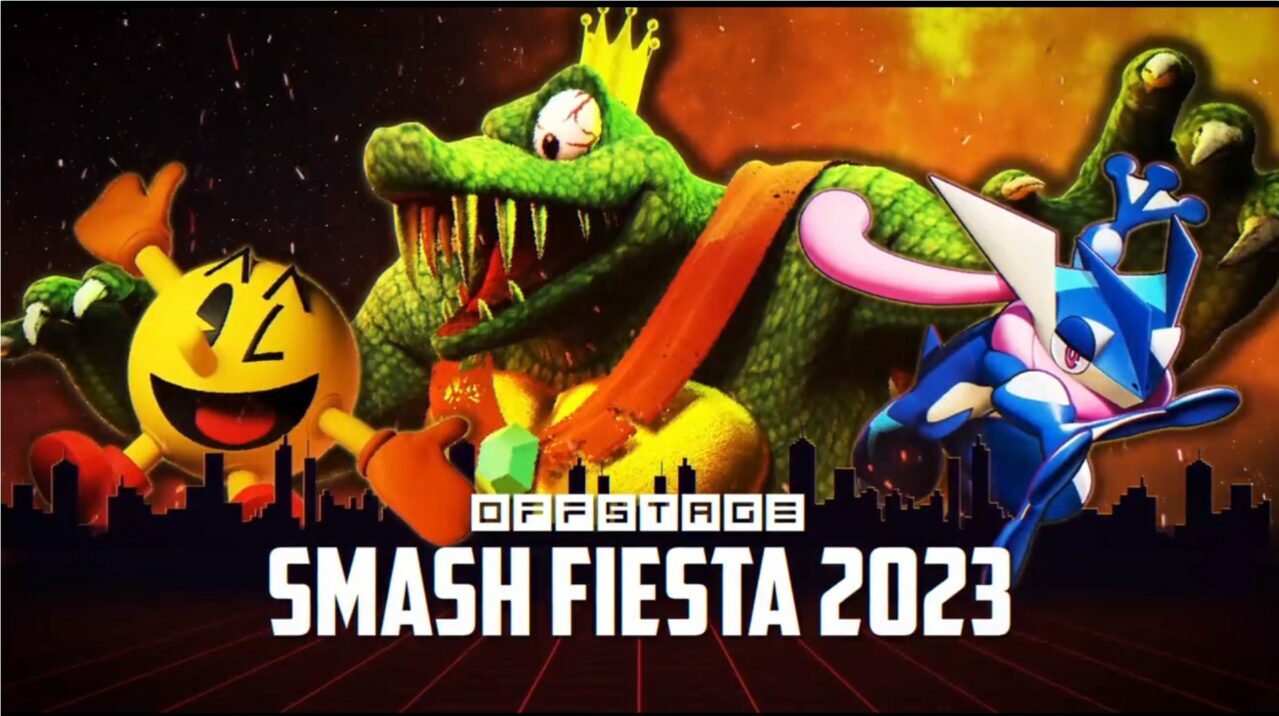
By Lewis LarcombeVerified|November 26, 2023
Offstage has announced that Smash Fiesta, Malaysia's biggest Super Smash Bros. Ultimate tournament is returning after a four-year hiatus. Earlier t...
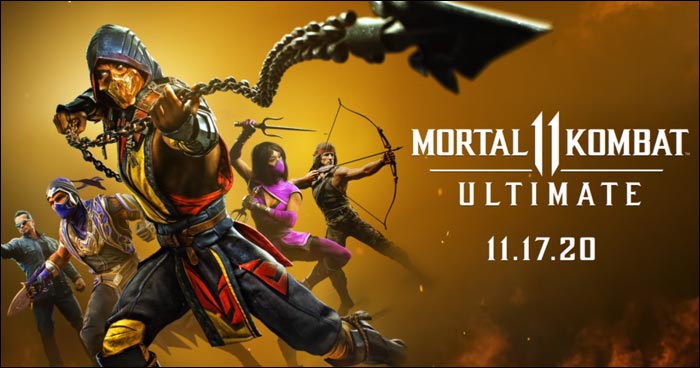
By Jonathan ToyadVerified|October 8, 2020
Just when you thought Mortal Kombat's guest additions couldn't get any more bizarre and pop culture-y, along comes this NetherRealm Studios' announcem...

By Ali'sha HarrisVerified|June 19, 2024
Spain-based video game company Aeternum Game Studios has finally revealed the release date for the anticipated cyberpunk platformer adventure game Ede...

By Jonathan Toyad|May 6, 2025

By Jonathan Toyad|April 30, 2025

By Jonathan Toyad|April 9, 2025

By Jonathan Toyad|March 28, 2025

By Kakuchopurei|February 17, 2025

By Ali'sha Harris|February 16, 2025

By Jonathan Toyad|May 6, 2025

By Jonathan Toyad|May 5, 2025

By Jonathan Toyad|May 6, 2025

By Jonathan Toyad|April 30, 2025

By Jonathan Toyad|April 9, 2025

By Jonathan Toyad|March 28, 2025

By Kakuchopurei|February 17, 2025

By Ali'sha Harris|February 16, 2025

By Jonathan Toyad|May 6, 2025

By Jonathan Toyad|April 30, 2025

By Jonathan Toyad|April 9, 2025

By Jonathan Toyad|March 28, 2025

By Kakuchopurei|February 17, 2025

By Ali'sha Harris|February 16, 2025
Copyright @ Kakuchopurei 2025
Visions Of Mana Gives First Look At New Mounts & Combat, Launches In Summer 2024
January 19, 2024 at 5:14 am
[…] last major games in the franchise were the Trials Of Mana remake in May 2020 (check out our review here), and the 2022’s Echoes Of Mana, which was a mobile […]